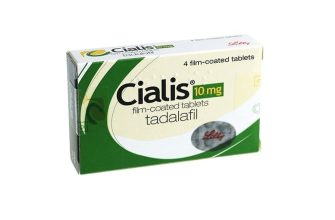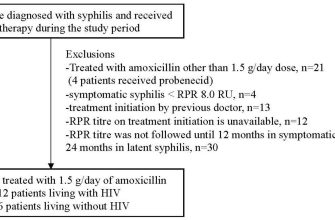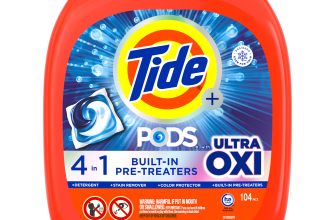Prednisone can suppress your immune system, increasing your risk of herpes outbreaks. If you experience a herpes outbreak while taking prednisone, contact your doctor immediately. They can adjust your medication or prescribe antiviral treatment to manage the symptoms.
Don’t self-treat. Ignoring a herpes outbreak while on prednisone could lead to complications. Your physician will assess your specific situation and recommend the best course of action, possibly including a change in your prednisone dosage or a prescription for antiviral medications like acyclovir or valacyclovir. These antivirals directly combat the herpes virus, reducing the severity and duration of the outbreak.
Proper hygiene is key. Frequent handwashing minimizes the spread of the virus. Avoid touching the affected area and keep it clean and dry to prevent further irritation and potential secondary infections. Your doctor can also provide advice on managing discomfort and preventing future occurrences. Remember, open communication with your healthcare provider is critical for successful management.
- Prednisone and Herpes Outbreaks: Understanding the Link
- Prednisone’s Impact on the Immune System
- How Prednisone Increases Herpes Outbreak Risk
- Types of Herpes Affected by Prednisone Use
- Herpes Simplex Virus (HSV-1 and HSV-2)
- Varicella-Zoster Virus (VZV)
- Herpes Management While on Prednisone
- Recognizing a Herpes Outbreak While on Prednisone
- Common Symptoms of Herpes Reactivation
- Distinguishing Herpes from Other Conditions
- Managing a Herpes Outbreak During Prednisone Treatment
- Consulting Your Doctor: When to Seek Medical Advice
Prednisone and Herpes Outbreaks: Understanding the Link
Prednisone, a corticosteroid, weakens your immune system. This immunosuppression increases your risk of developing a herpes outbreak if you carry the virus, even if you’ve had no problems before. The virus, latent in your body, can reactivate more easily.
The severity of the outbreak can vary. Some experience mild symptoms, while others have more intense reactions. Factors influencing severity include the type of herpes virus (HSV-1 or HSV-2), the dosage of prednisone, and your overall health.
If you’re prescribed prednisone and have a history of herpes, discuss this with your doctor. They can monitor you closely and suggest ways to manage potential outbreaks. Prophylactic antiviral medication might be an option.
During prednisone treatment, good hygiene practices are critical. Avoid touching your face and wash your hands frequently to reduce the spread of the virus.
Remember, early detection of an outbreak is key to faster healing. If you notice symptoms, contact your physician immediately. Treatment may involve antiviral medications to lessen the duration and severity of the outbreak.
While prednisone offers significant therapeutic benefits, understanding its potential link to herpes outbreaks allows for proactive management and minimizes potential complications.
Prednisone’s Impact on the Immune System
Prednisone, a corticosteroid, significantly suppresses your immune system. It achieves this by reducing the production of inflammatory cells and proteins. This means your body’s ability to fight off infections, including herpes, is weakened.
Specifically, prednisone affects various immune cells, including lymphocytes (T cells and B cells) and macrophages. Reduced lymphocyte activity hinders the body’s response to viruses like herpes simplex. Macrophages, crucial for pathogen clearance, also become less effective under prednisone’s influence.
The degree of immunosuppression depends on the dosage and duration of prednisone use. Higher doses and longer treatment periods generally lead to more pronounced immune suppression. This increased vulnerability to infections is a considerable risk factor to consider.
Important Note: Consult your doctor about managing herpes outbreaks while taking prednisone. They can help you weigh the risks and benefits of your treatment plan and discuss strategies for minimizing infection risk.
Remember: This information is for educational purposes only and does not substitute for professional medical advice. Always consult your physician for diagnosis and treatment of medical conditions.
How Prednisone Increases Herpes Outbreak Risk
Prednisone, a corticosteroid, weakens your immune system. This immunosuppression directly increases your chances of experiencing a herpes outbreak if you carry the virus.
Here’s how it works:
- Immune Suppression: Prednisone reduces the activity of your immune cells, hindering their ability to control and suppress the herpes virus (HSV-1 or HSV-2).
- Viral Reactivation: The herpes virus often lies dormant in nerve cells. A weakened immune system allows the virus to reactivate, leading to a visible outbreak.
- Increased Severity: Even if you’ve had mild outbreaks in the past, Prednisone can make them more severe, with larger lesions and prolonged healing times.
Managing the risk involves proactive steps:
- Discuss with your doctor: Before starting Prednisone, talk to your doctor about your herpes history. They can assess your risk and help manage potential outbreaks.
- Antiviral medication: Your doctor might prescribe antiviral medication (like acyclovir or valacyclovir) alongside Prednisone, particularly if you have a history of frequent or severe outbreaks.
- Hygiene practices: Maintaining good hygiene, including frequent handwashing, can help prevent the spread of the virus.
- Stress management: Stress can trigger herpes outbreaks. Practicing stress-reduction techniques, such as exercise or meditation, may be beneficial.
Remember, open communication with your healthcare provider is paramount for managing the risks associated with Prednisone and herpes.
Types of Herpes Affected by Prednisone Use
Prednisone, a corticosteroid, can worsen herpes simplex virus (HSV) outbreaks, affecting both oral (HSV-1, commonly causing cold sores) and genital herpes (HSV-2). It’s crucial to understand how this impacts different herpes types.
Herpes Simplex Virus (HSV-1 and HSV-2)
Prednisone suppresses the immune system, allowing HSV to replicate more easily. This can lead to more frequent, severe, and prolonged outbreaks of both oral and genital herpes. You might experience larger lesions, increased pain, and a longer healing time. Managing this requires careful monitoring and potential adjustments to your antiviral medication.
Varicella-Zoster Virus (VZV)
VZV causes chickenpox and shingles. Prednisone use can reactivate VZV, leading to shingles outbreaks, particularly in individuals with a history of chickenpox. These reactivations can be more painful and extensive than usual. Early intervention with antiviral medication is vital.
Herpes Management While on Prednisone
Open communication with your doctor is key. They can assess your individual risk and help manage potential outbreaks. This might involve adjusting your prednisone dosage, prescribing antiviral medication, or recommending other supportive therapies.
| Herpes Type | Prednisone Effect | Management Strategies |
|---|---|---|
| HSV-1 (Oral Herpes) | Increased frequency, severity, and duration of outbreaks | Antiviral medication, pain management |
| HSV-2 (Genital Herpes) | More frequent, severe, and prolonged outbreaks | Antiviral medication, pain management |
| VZV (Shingles) | Reactivation leading to shingles outbreaks | Antiviral medication, pain management |
Recognizing a Herpes Outbreak While on Prednisone
Prednisone weakens your immune system, increasing your risk of herpes outbreaks. Pay close attention to any changes in your skin or genitals.
Common Symptoms of Herpes Reactivation
- Itching or tingling: This often precedes visible sores. Note the location and intensity.
- Painful blisters: These small, fluid-filled blisters are characteristic of herpes simplex virus (HSV). Count them if possible.
- Sores: Blisters eventually break, forming painful sores. Observe their size and color changes.
- Swollen lymph nodes: Swollen glands in your neck or groin can accompany a herpes outbreak.
If you experience any of these, especially if you have a history of herpes, contact your doctor immediately. Do not self-treat.
Distinguishing Herpes from Other Conditions
- Location: Herpes outbreaks typically occur on the lips (oral herpes) or genitals (genital herpes). Note the precise location.
- Appearance: Compare your symptoms to images of herpes online. However, remember a visual diagnosis is not definitive.
- Other symptoms: Fever, headache, or body aches can accompany a herpes outbreak, but these are not always present.
Prompt diagnosis and treatment are key to managing a herpes outbreak, especially when on Prednisone. Your doctor can prescribe antiviral medications to reduce the duration and severity of the outbreak.
Managing a Herpes Outbreak During Prednisone Treatment
Contact your doctor immediately. Prednisone weakens your immune system, making herpes outbreaks more severe and prolonged. Early intervention is key.
Your doctor might prescribe antiviral medication like acyclovir, valacyclovir, or famciclovir to shorten the duration and severity of the outbreak. Follow their dosage instructions precisely.
Maintain meticulous hygiene. Wash your hands thoroughly and frequently, especially after touching the affected area. Avoid touching your eyes or other parts of your body.
Keep the affected area clean and dry. Gently pat the area dry after washing; avoid rubbing. Consider using loose, breathable clothing to prevent irritation.
Apply a cool compress to reduce discomfort and swelling. This can provide temporary relief from itching and pain.
Over-the-counter pain relievers, such as ibuprofen or acetaminophen, can help manage pain and fever associated with the outbreak. Always follow package directions.
Avoid sharing personal items like towels, razors, or lip balms to prevent spreading the virus.
During the outbreak, abstain from sexual contact to avoid transmission. This is especially important because prednisone weakens your immune system.
Monitor the outbreak closely. If symptoms worsen or you experience new symptoms, seek immediate medical attention.
Remember: This information is for guidance only and does not replace professional medical advice. Always consult your physician for diagnosis and treatment.
Consulting Your Doctor: When to Seek Medical Advice
Contact your doctor immediately if your herpes outbreak worsens despite taking prednisone. This includes increased pain, larger lesions, or spreading sores.
Seek medical attention if you experience fever, swollen lymph nodes, or unusual fatigue alongside your outbreak. These symptoms may indicate a more serious infection.
If your herpes outbreak doesn’t improve after a week of prednisone treatment, schedule an appointment with your doctor. They can assess your response and adjust treatment if necessary.
Always consult your doctor before starting or stopping any medication, including prednisone, especially if you have other health conditions.
Note: Prednisone can suppress the immune system, potentially prolonging or worsening a herpes outbreak in some cases. Your doctor can help manage this risk.
If you experience severe pain, vision changes, or difficulty breathing, go to the emergency room immediately.










